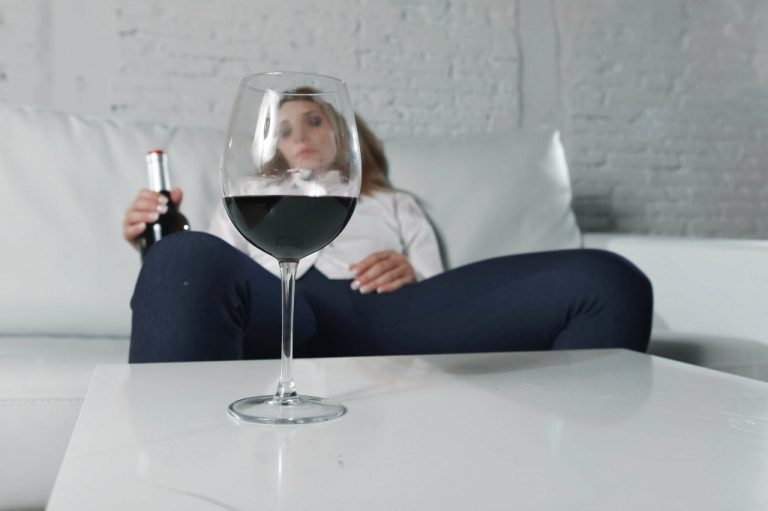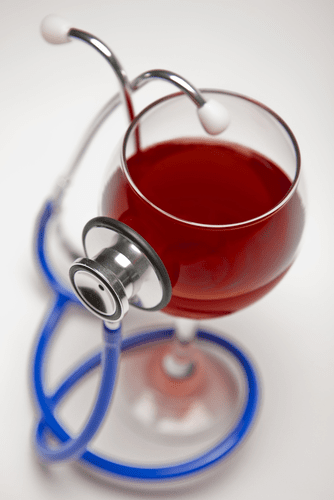Alcohol is also known to strongly inhibit (or block) an enzyme in the liver known CYP2C9. When alcohol is consumed with other drugs that primarily use this enzyme for breakdown and excretion, blood levels of the other drug may theoretically increase, leading to increased side effects and toxicity. Depression pills and alcohol can result in added drowsiness, dizziness and risk for injury. It is usually best to avoid the combination of alcohol and medications for depression.

Subjects included 1,383 persons participating in the COMBINE Study, a large multicenter treatment study for alcohol dependence. The Trial of Hypertension Prevention, one of the biggest studies on high blood pressure, found that losing around 4.5 pounds resulted in lowered blood pressure. Of the people monitored in the study, 42% no longer had hypertension after losing the weight. “The more activity you do, the more likely you’re likely to maintain blood pressure control.” She recommended exercising for 30 minutes three times a week, including a warm-up and cool down. “Exercise and activity can lower blood pressure better than many of the evidence-based medications,” Dr. Abramson said.
Pitsavos 2004 published data only
We contacted study authors for missing or unclear information required for the risk of bias assessment and then reassessed the domains once the information was available. Alcohol can affect drinkers differently based on their age, sex, ethnicity, family history, and liver condition (Cederbaum 2012; Chen 1999; Gentry 2000; Thomasson 1995). Previous studies reported that women are affected more than men after drinking the same amount of alcohol because of their lower body weight and higher body fat. The blood alcohol concentration (BAC) rises faster in women because they have a smaller volume of distribution (Kwo 1998). In contrast, women eliminate alcohol from the body a little faster than men (Thomasson 2000).
Intermediate (7 to 12 hours) and late (after 13 hours) effects of the medium dose of alcohol on HR were based on only four trials and were not statistically different compared to placebo. Chen 1986 reported that two participants in the alcohol group dropped out of the study for unknown reasons, so data analyses were based on eight participants in alcohol lowers blood pressure the alcohol group and on 10 participants in the control group. Because the reasons behind withdrawal were not mentioned in this study, we considered this study to have high risk of bias. We assessed selective reporting bias for each of the outcomes separately. For the other domains, we grouped outcomes together and provided only one judgement.
Farre 1993 published data only
So, we had to calculate missing MAP values from reported SBP and DBP values using the formula mentioned in the protocol and we imputed the SE/SD for those. There is likely a dose‐response effect of alcohol on BP, as the effects of alcohol appeared to last longer with higher doses. We intended to find out the dose‐dependent changes in SBP, DBP, mean arterial pressure (MAP), and HR after consumption of a single dose of alcohol.

We identified Stott 1987 and Barden 2013 from Analysis 3.1 and Analysis 3.2 as having a considerably lower standard error (SE) of the mean difference (MD) compared to the other included studies. Assuming that the low SEs of MDs reported in Stott 1987 and Barden 2013 are errors and are not reliable, we replaced these measures with the average SE of MD from the rest of the included studies. Rosito 1999 reported the effects of 15, 30, and 60 g of alcohol compared to placebo on healthy male volunteers.
Li 2006 published data only
Angina (ischemic chest pain) is caused by reduced blood flow to the heart. If you have angina, you might be prescribed a medication called nitroglycerin. The longer a person misuses stimulants and alcohol together, the higher the risk becomes of developing substance use disorders. The label on your medication may not specifically warn against consuming alcohol while you are taking the drug, so it’s important not to assume that the absence of a warning means it is safe to mix the two.
- Some medications pose more serious risks than others, with symptoms ranging from drowsiness and dizziness to liver damage, slowed breathing, and possibly death.
- Consuming alcohol can increase the risk of high blood pressure and other metabolic conditions in several ways.
- High blood pressure can be caused by factors including genetics, smoking, having diabetes, and lack of physical activity.
For times greater than 13 hours, high doses of alcohol consumption increased blood pressure. Low, moderate, and high alcohol consumption increased heart rate within the first six hours. High alcohol consumption also increased heart rate from 7 to 12 hours and after 13 hours. Most of the evidence from this review is relevant to healthy males, as these trials included small numbers of women (126 females compared to 638 males). This review did not find any eligible RCTs that reported the effects of alcohol on women separately.
Choosing blood pressure medicines
Because alcohol can generally lead to higher blood pressure, regular intake can make it harder to control your condition. When combined with alcohol, sleeping pills can have the same effect as many other meds on this list. People can also have problems with motor control, memory, and behavior. Here’s a list of medications that can negatively interact with alcohol along with descriptions of what those interactions may look like. In addition, the older we get, the more likely we are to be taking one or more medications that could interact with alcohol.